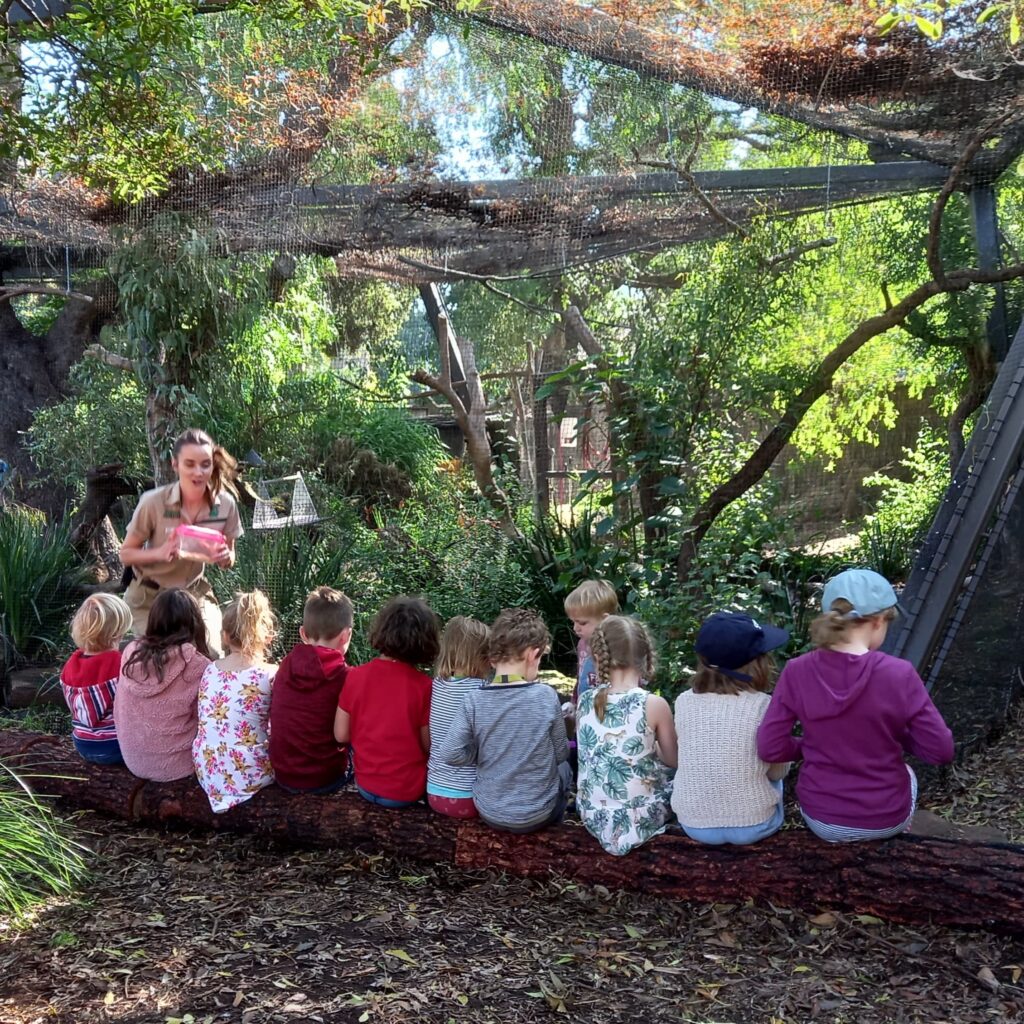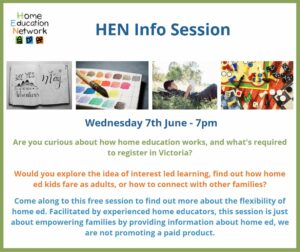
Homeschooling- what really happens?
What comes to mind when someone says homeschooling? Many people imagine something which looks like remote learning, with kids sitting at a desk, or online for hours each day. For this reason, many families prefer the term home education, as what we do is not schooling.
Over the past few decades home education has become an accepted and valid educational choice for many families. Parents assume full responsibility for their child’s education, using their own home as a base. The number of children being educated at home has increased steadily, the latest available figures show that 11,912 students are registered for home education in Victoria, a 36.4% increase on the previous year.
The common stereotype of a stay-at-home mum educating a large family does not reflect reality. Dads home educate, as do single parents and grandparents, and parents come from a wide variety of social and educational backgrounds. Some parents each work part-time and share the care of the children, while others work from home. Families may have children at home and at school, or choose partial enrolment. You have 365 days a year to home educate, and can spread your education throughout the year and are not confined to school hours, school days or school terms. Home education can fit around your life.
Home educators are a diverse group, but the one thing we have in common is that we have all decided that our children will be better off educated outside the traditional school system. Every year, The Home Education Network (HEN) surveys home education families around Australia. The latest results show that just over 60% of people chose to home educate primarily due to issues with school, with the remainder making the decision primarily for philosophical reasons. When asked ‘Why do you home educate?’, the most common responses were ‘For a happy family’, and ‘Child-led or tailored education’ (65% each). Forty five percent of respondents cited ‘Specific learning needs’ as a significant factor, and the HEN support team have noted a significant increase in the number of children with disabilities, neurodivergence or School Can’t (school refusal) who are moving to home education. We have heard from these families how life changing the switch has been: improved mental health, greater engagement in learning, improved self-confidence and improved learning outcomes.
Children learn at home through reading, conversation, play, outside classes, camps, the internet, TV, volunteering, work, hobbies, and everyday experiences in the community. Typically, children will have some time during their day to explore/work/play on their own, some time with their parents, and some time in community activities such as Scouts, organised sport, art class, home education groups, or excursions. Each family structures its own schedule as children grow, and needs change. Many home educators have an eclectic approach. They might choose to do daily lessons in maths and reading with afternoons spent exploring the humanities, technology and science through conversation and experiences. Even the most structured home ed families seldom spend more than a couple of hours a day on bookwork. It is not unusual for people other than parents (such as other family members, friends, and people in the wider community) to play a role in the education process. Just as there is no one true way to parent children, there is no one right way to home educate either – different approaches suit the circumstances and dynamics of different families. You can adjust your approach, resources and philosophy as you go along, and most of us do so. Whatever the approach taken, children invariably learn.
Parents considering home education often have concerns about socialisation and the long-term prospects of home educated children. Our own view of education is usually formed by what we and our children experienced at school. As a result, we are conditioned to believe that socialising in large, age-based groups is the best preparation for life, and that academic success comes from following a set curriculum. In fact, what’s necessary or best for one student will differ wildly from another who differs in age, location, learning style, health, future career plans etc. Home educated students have attended every university (and most TAFEs) in Australia. They also have good strong relationships with peers, as well as with adults and those younger or older than themselves.
Home educated children are not lonely or isolated. There are many classes, sport sessions, excursions, incursions, online sessions, social groups, and camps for home educated children. I have just come back from Kryal Castle, where 150 students of all ages spent three days learning about mediaeval times, as well as catching up with old friends and making new ones. Home-ed kids also have plenty of time with their siblings, extended family and friends – when my children were younger, we would often have 4-5 hour ‘playdates’ several times a week.
Of course, adults need to read and write, to understand how the world works, to be able to perform basic calculations, and depending on their job they may also need to know the correct dose of paracetamol for a 3 kg child, the formula for shear stress, or how to say Cretaceous in Mandarin. But they have years to learn these skills, and when they are at university or out in the community, nobody is going to care when or how they did so. What matters is that someone was there to help them when they needed it, to guide and support them, to help them learn how to learn. By working at your child’s level, encouraging without forcing, making learning meaningful and satisfying, so much learning happens naturally. When new skills are ready to be mastered, progress is often fast. Important skills such as creativity, problem solving, persistence and empathy are not best learnt through mandated tasks, but rather through experimenting, not being scared to get things wrong, being free to express oneself and to be different – none of which are valued within the mainstream education system.
The law in Victoria requires parents to register for home education with the VRQA. There’s an application form which must be accompanied for a learning plan for each child. The plan is very flexible, and does not need to look like school. You can choose activities which fit with your child’s interests, and there is lots of support and information available to help you come up with suitable activities. You only need to provide an overview of your intentions for the year, no education jargon is required – and the VRQA understands that plans will change, so it’s fine to make changes after your registration is approved without notifying the VRQA.
Lack of information is a key barrier to choosing home education, so it’s great to see the VPC sharing information about all education choices. If home education seems like something which might work for your family, the HEN website is an excellent starting place for your research. We are a member organisation, but information and support are free, with no pressure to join. You might also enjoy our upcoming free information session on 7th June.
Links
HEN https://home-ed.vic.edu.au/
VRQA https://www.vrqa.vic.gov.au/home/Pages/homeeducation.aspx
HEN information session (free) 7pm, Wednesday 7th June. Register here


